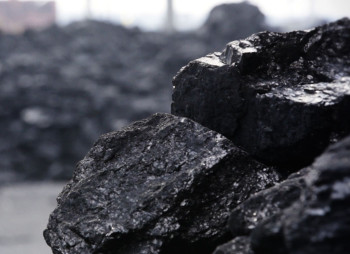On 24 December 2022, the President of Ukraine signed Law of Ukraine No. 4187 "On Amendments to Certain Legislative Acts of Ukraine on Supporting the Development of Domestic Subsoil Use Industries" (the Law), which, according to the lawmakers, should radically change this industry and attract more investments in Ukrainian subsoil. The Parliament registered the draft Law back in October 2020 and only two years later it was finalized and adopted. The key provisions include:
- deregulation of the sector and its digitalization
- free market of special permits
- new terms for special permit extension
- exhaustive cases of revocation and suspension of subsoil use rights
Deregulation of the sector and its digitalization
The State Service of Geology and Subsoil of Ukraine (Derzhgeonadra) will create a unified state electronic geoinformation system. This system will be a large free Internet portal that will include information from state registers, geological information, and, in particular, information about areas for which special permits can be obtained through auctions or for which production sharing tenders have been announced. Users can submit documents for obtaining a special permit, make changes and extend its validity through their personal accounts.
The Parliament is introducing a "comprehensive" special permit for subsoil use that will be valid from 3 to 20 years. The permit will enable the exploration and immediate extraction of mineral resources. It is important to note that obtaining a mining allotment is no longer necessary to acquire a special permit. Mining allotments will only be granted to coal mines and ore mines.
The Law establishes exhaustive lists of circumstances when a special permit may be granted without an auction. Among the cases is the so-called "smallscale subsoil use". It allows the owner of land plots of up to 25 hectares to obtain a special permit for geological exploration with the extraction of minerals of local importance on such areas.
Free market of special permits
Subsoil users will be able to sell all or part of their subsoil use rights. Such rights will be alienated under a sale and purchase agreement. However, only after the reserves have been distributed among the areas of a previously explored field and after making changes or obtaining a separate permit for the use of such a field. It is possible to contribute subsoil use rights under a special permit as a contribution to the authorized capital or as a contribution to joint ventures. Legislators have set certain restrictions on the alienation of special permits for public sector entities and companies in which the state has a share. Thus, they may sell the rights or contribute them to the share capital only to legal entities with 100% state ownership or if such entities own 50% or more of the shares in other companies.
New specifics of the special permit extension
A subsoil user will not be able to extend the validity of a special permit if it has extracted less than 1% of the balance sheet reserves. If 1-5% of the balance sheet reserves have been extracted, the fee for extending the permit will be 20% of the initial auction price of its sale. Such conditions do not apply to coal production by companies that receive subsidies from the state budget. The fee for the extension of the special permit for groundwater extraction and geothermal energy production will be 100% of the initial auction price.
Exhaustive cases of revocation and suspension of subsoil use rights
The legislator has established an exhaustive list of grounds for revocation and suspension of subsoil use rights. Among the cases for revocation are violations in the submission of documents for obtaining a special permit, failure to fulfil the work program within the established timeframe, depletion of reserves or threats to life and health, and environmental pollution. A subsoil user may independently request the revocation of a special permit if there is no longer a need to use subsoil.
Temporary prohibition or suspension of subsoil use is applied in more formal cases. For example, if the state register does not contain information about the ultimate beneficial owner or if such a user is subject to a sanction under the Law of Ukraine "On Sanctions". Depending on the grounds, the State Service of Geology and Subsoil or the courts will be able to suspend the right to use the subsoil, if the subsoil user has not eliminated the violations after inspections or has not allowed the regulatory authorities to conduct them.
Within 20 days after the special permit is suspended, the subsoil user must stop working on the area and its validity period will not be interrupted. However, the subsoil user will continue to ensure security at the area to prevent emergencies.
It is prohibited to use subsoil, including under production sharing agreements, to legal entities and individuals of the aggressor state. This also applies to companies in which the aggressor state or its legal entity has a significant participation.
Recently, government officials at a meeting with their European counterparts stated that Ukraine has mineral deposits containing 21 out of 30 important minerals for the European Union. Our country's mineral resources contain 5% of the world's minerals. Given the course of the civilized world's energy independence from Russian resources, the importance of extracting Ukrainian subsoil is becoming increasingly important and in demand. Currently, investors are going through a long and complicated process that can take several years from the moment of holding auctions, obtaining special permits for subsoil use to their extraction. The law aims to restart the industry, attract more investments, and accelerate the realization of the potential of Ukrainian subsoil in the world.




